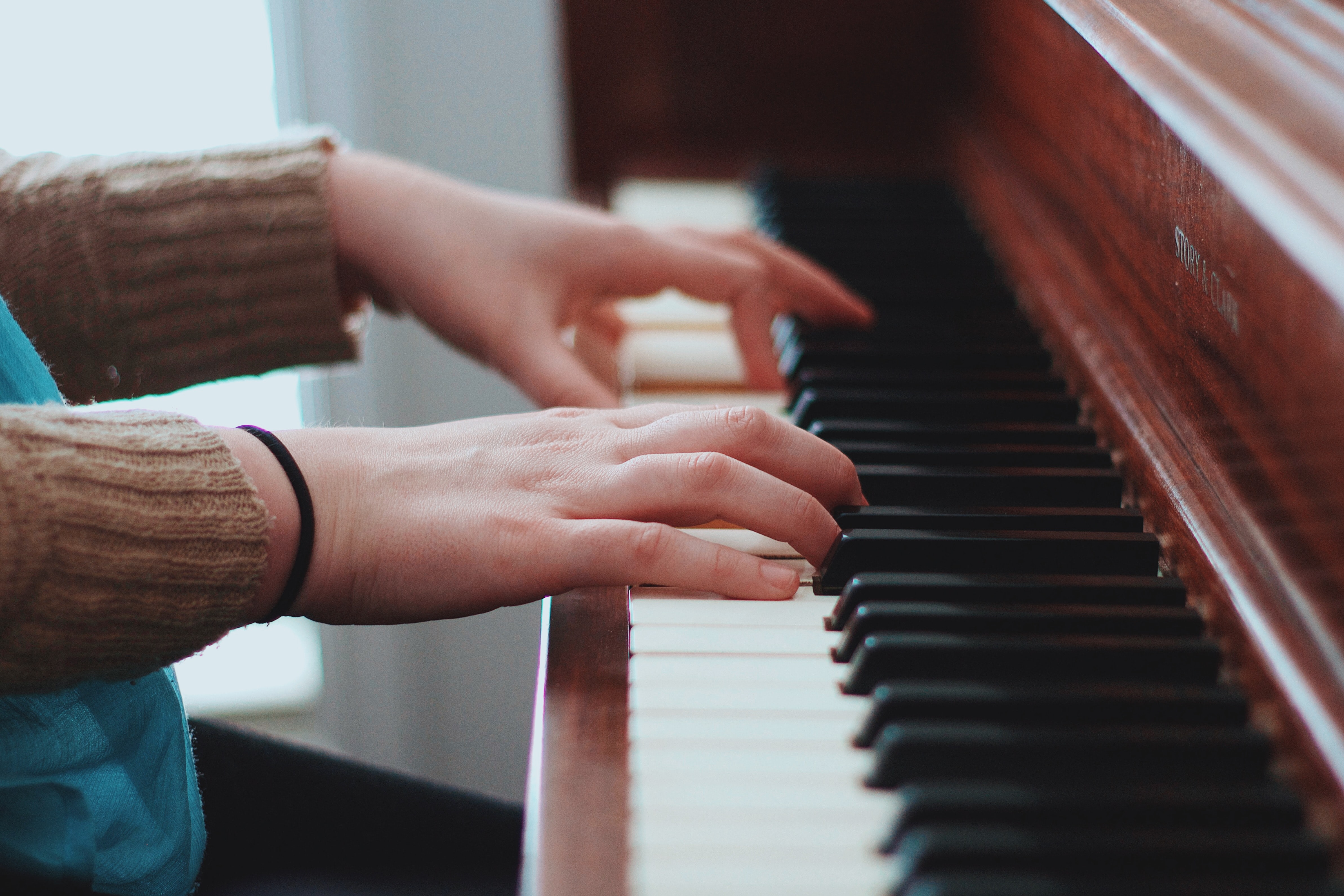
Learning an instrument for Arts Award

BY: Amy Lee
14 Nov 2022
Are you an adviser thinking about working with instrumental teachers in order to include the learning of an instrument in your Arts Award delivery? Are you unsure of the best ways to get your young people started and how they can evidence their musical learning in their arts logs or portfolios? Read on for some top tips on learning an instrument for your Arts Award.
Groups or solo learning?
Firstly, you will need to consider the size of your group and how you plan on incorporating the teaching. If you are delivering in a school setting or to a larger group, you may want to consider reading this blog on Capturing the joy of Whole Class Instrumental Teaching through Arts Award. Or will the young people be receiving private tuition to assist with their learning? Either way, it’s best to get an idea of how many young people will be involved so you can plan your project effectively.
Which instrument and Arts Award level?
Once you know the number of young people involved, you will need to decide which instrument and Arts Award level you’re going to focus on, and how you will incorporate the learning into the Arts Award framework as detailed in the Adviser Toolkit. When deciding on a level, you may want to consider whether the young people in your group already have a degree of musical knowledge, any instrument they play and what is the extent of their instrumental skills. For instance, it might be an idea to include a new starter on a lower level of Arts Award, since it may take them longer to complete their arts challenge/activity. Of course, this is entirely up the adviser, and the Arts Award framework is flexible, meaning instrumental learning can be introduced at any stage of the journey.
Choosing an instrument to focus on for Arts Award will depend on a variety of factors personal to your setting: Does your chosen teacher specialise in certain instruments for example, woodwind or percussion? If the teacher can teach multiple instruments, will you give the young people the opportunity to take the initiative (important at higher Arts Award levels), and make the decision themselves? Is it more practical to have all the young people learning the same instrument and working towards the same Arts Award level? If a young person is already learning an instrument, what kind of arts challenges will you set – will you work on improving technique, learning new repertoire, or what about a specialist skill like improvisation?
How does learning an instrument fit into the Arts Award framework?
You are now further with your planning, but you need to be specific about which part(s) of the level(s) you are delivering will incorporate the instrumental learning. To get an idea, here are some examples of how you could include the learning of an instrument. You can be creative with how you do this; this isn’t an exhaustive list:
- Many Arts Award levels require participation in an arts activity (Discover Part A, Explore Part A, Bronze Part A), and in the higher levels such as Silver Unit 1 Part A, you need to plan an arts challenge. These are all great opportunities to include instrumental learning: both as an activity the young people take part in, and also as a challenge. For example, for Silver Unit 1 Part A, this could involve learning a new instrument, or learning a concerto or song cycle.
- The music teacher could also act as the artist that young people need to find out about, for example in Part B of Discover and Explore, the arts practitioner they meet for Silver Unit 1 Part D, or even their arts inspiration for Bronze Part C. This will also help them to develop their understanding of wider career opportunities related to the instrument they are learning.
- While learning instruments, the young people may also pick up other related musicianship skills, such as composition. This could then be something they ‘Create’ in Explore Part B, for example, where they could record the process of creating a composition before presenting a score/recording/performance of the final work.
- You could also incorporate Discover in a Day into a music taster session where young people could both play and learn about music, as suggested by Natalie Christopher in the blog Arts Award in music education settings
The blog Arts Award and the Model Music Curriculum, also gives some great examples of how you could include learning an instrument at the Discover, Explore and Bronze levels when teaching in schools. Arts Award has partnered with Charanga, who have resources that can assist with these levels. Lesson schemes and freestyle resources provide activities – and pupils can evidence their learning and reflect on skills learnt using an interactive digital Bronze portfolio on the YUMU learning platform. Charanga musician and composer resources can also provide inspiration for finding out about artists/practitioners (Discover & Explore Part B).
You can find more resources that assist with supporting learners this November at This is Trinity.

.jpg)

Comments & Replies